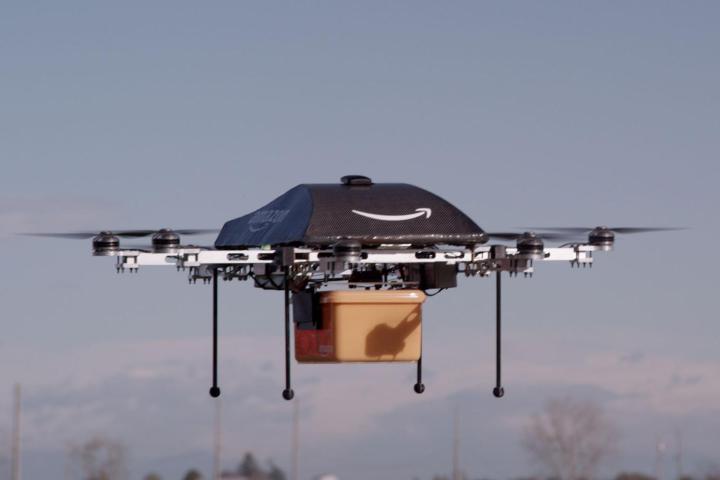
The FAA said it’d issued the company with an “experimental airworthiness certificate” that allows Amazon to operate its UAV “for research and development and crew training.”
With safety in mind, the administration’s certificate stipulates that the Web company can not fly its drone any higher than 400 feet (122 meters), and that all tests must be carried out during daylight hours.
In addition, test pilots “must have at least a private pilot’s certificate and current medical certification,” the FAA said, and must keep the UAV within sight at all times.
The aviation body further stipulated that Amazon has to provide it with monthly data detailing the number of flights conducted, pilot duty time per flight, unusual hardware or software issues, any deviations from instructions given by air traffic controllers, and any unintended loss of communication links.
Pressure
The e-commerce giant had been pressing the FAA for clearance to test its Prime Air drone since last July, seven months after it first unveiled the ambitious plan.
Frustrated by the administration’s apparent lack of movement on the issue, and in an effort to apply pressure on the agency, Paul Misener, Amazon’s VP of global public policy, threatened to move the company’s testing program overseas, taking research funds and jobs with it. Indeed, the company has already announced plans for a new R&D center in the UK, with much of its work expected to focus on Prime Air.
Most commercial drone flights in the U.S. are currently banned. However, with the technology becoming more reliable as well as affordable, many businesses are keen to make use of it. With this in mind, the FAA is now working on a set of guidelines for the commercial use of drones, although, to the frustration of many companies, it may be some time before the rules are implemented.
While Amazon will be relieved that it now has greater freedom to test its drones in the U.S., it knows that even if it can design what it considers to be a safe and efficient drone-based delivery service, there are still countless regulatory hoops to jump through before it can ever become a reality.
[Source: FAA]


